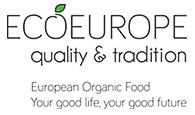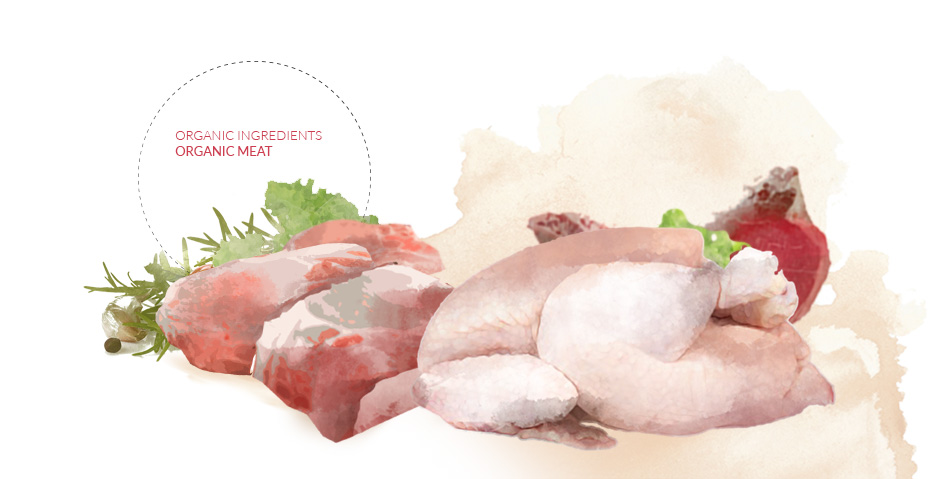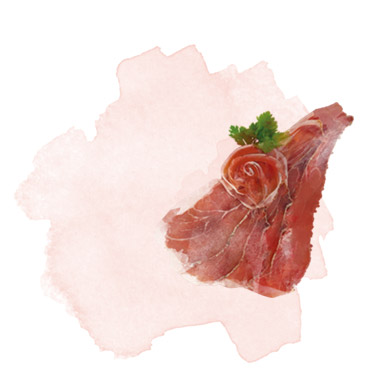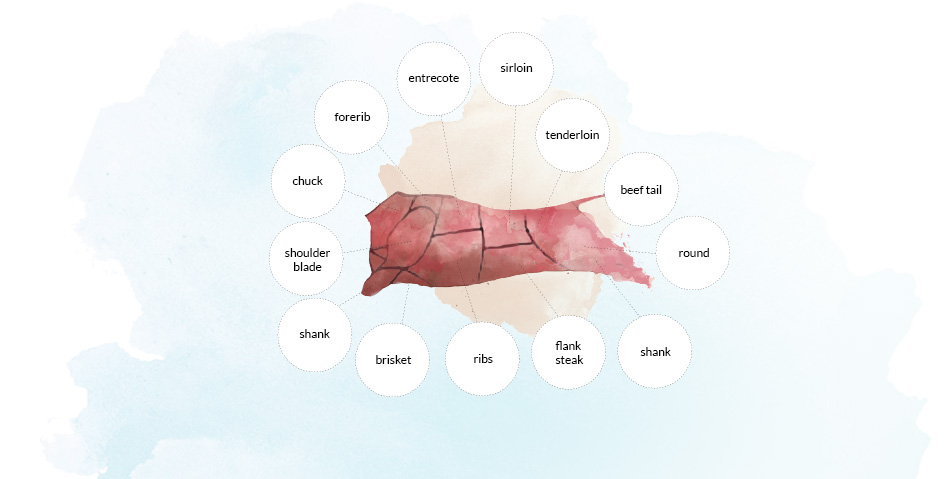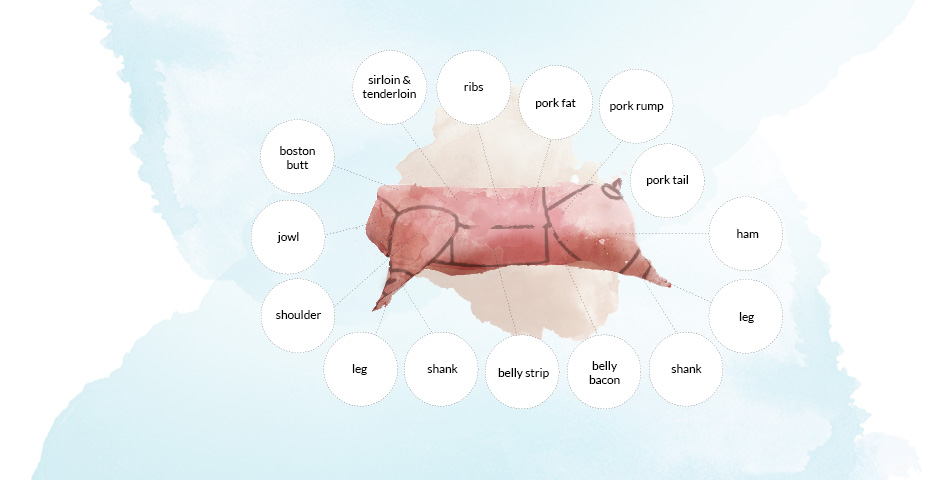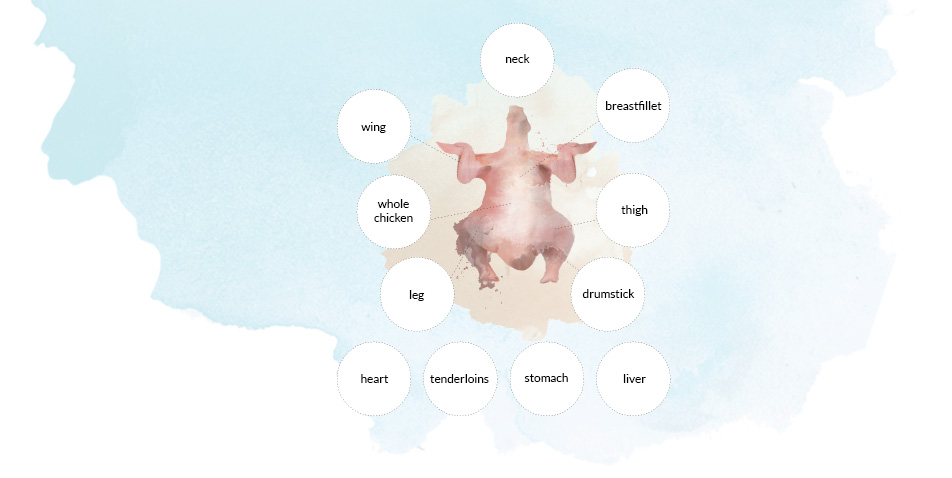Organic animal production means that animals have free and unrestrained access to pastures as well as open-air runs and are fed organic feed only.
Organic animal production also means:
- 0% antibiotics
- 0% growth hormones
- 0% genetically modified feed
Organic food production guarantees natural processing only, maximum amounts of vitamins, minerals and nutrients, as well as:
- 0% artificial preservatives and stabilisers
- 0% flavour and aroma enhancers
- 0% irradiation with ionising radiation
In the process of organic meat production, the processors and distributors are overseen equally with the producers. At every stage, quality takes priority over quantity. Every aspect of meat production impacts the final quality of organic meat.
Everything starts with the organic farm, which must comply with the relevant regulations and standards pertaining to animal farming. The rules laid out in Commission Regulation (EC) No. 889/2008 specify the number of animals which can be maintained in a given area, their feeding, as well as treatment.
Significant differences can also be observed regarding the time of slaughter. In the case of poultry, organic growth takes no less than 11 weeks, while in reality, the time is usually longer, while conventional farmers usually reserve just 6-7 weeks. Organic pigs are slaughtered after no less than 8 months, whilst conventional farmers slaughter them after just 3-4 months. The smallest difference is observed in the case of beef cattle, with 24 months in the case of organic, and 20 months in conventional farming.
In organic farms, as a rule, the animals feed on fodder produced on the farm or obtained elsewhere with appropriate certification. Here, quality is more important than maximising profits and efficiency, thus forced feeding is out of question. Moreover, all kinds of antibiotics, coccidiostats, growth promoters, as well as feeds and products made out of genetically modified organisms are forbidden when feeding the animals.
Organic animal production with access to fresh air, organic fodder and large exercise areas provide the meat with a perfect flavour and aroma.
In organic farming holdings the rearing of animals is tied to the crop production, i.e. the access to feed and meadows and pastures. Most organic farming holdings manage to close the loop of organic matter circulation. An important fact in organic rearing is the care for the welfare of animals which influences the quality of the organic ingredient.
The idea of animal welfare includes the conditions during the animal transport and humane slaughter. The higher the care for animal welfare, the higher the quality of the organic ingredient.
In organic rearing, the following conditions must be met:
- free range,
- free access to water,
- maintaining proper hygiene,
- maintaining proper micro-climate,
- maintaining proper lighting conditions,
- providing shelter from adverse weather conditions,
The following substances are excluded from the rearing:
- antibiotics,
- coccidiostats,
- medicinal substances,
- growth promoters,
- substance intended to stimulate growth or production,
- animal feeds and other products containing genetically modified organisms, or products derived from them.
